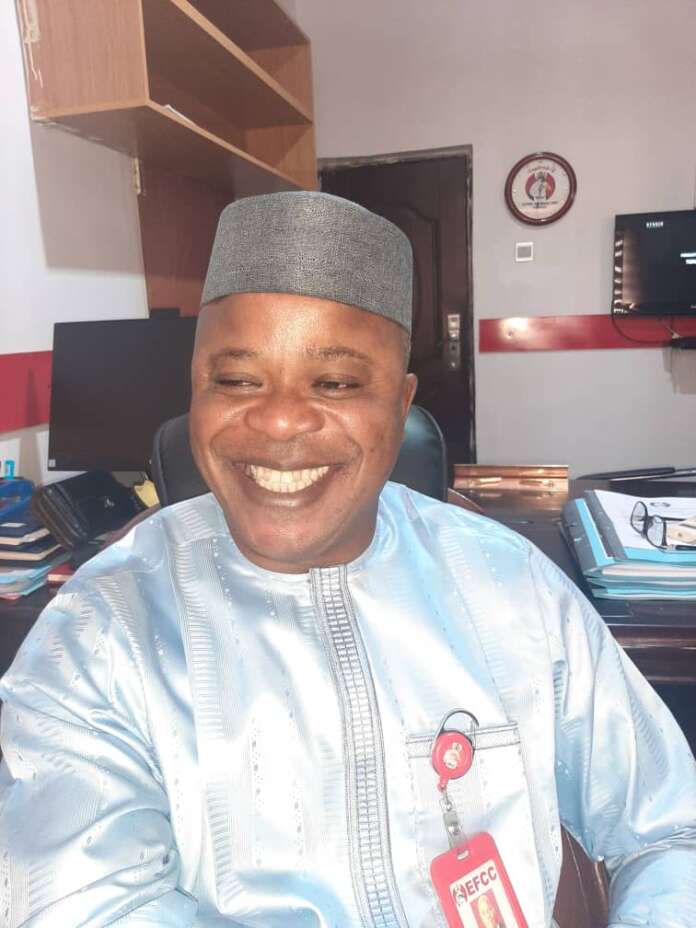By Lillian Okenwa
Born on the 2nd of August 1965 to the family of Ojogbane Haruna and the late Acheyawo Ojogbane at Agojeju -Ejule, in Ofu local government area of Kogi state, Jonson Ojogbane, a fellow of the National Institute for Security Studies and recently retired high-level prosecutor with the Economic Financial Crimes Commission (EFCC) tells the story of how the son of a local farmer, rose in his career: a testimony that no matter one’s background, with hard work and God’s favour, there’s no height a person cannot attain. He spoke with Lillian Okenwa.
L & S: Why law?
A: I realized early that I was good in arts. I was good at storytelling, reading and drama generally. As a church boy, I was involved in drama since I was six in our local church. I had no formal mentoring or anybody talking to me but I was fascinated by this older neighbour in the village who is a lawyer.
Barrister Isaac Okpanachi would come home with his car and his wife. A white woman. We were told that he was a lawyer and I liked what I saw. That’s the first lawyer I ever knew. He’s also into a lot of Christian ministry work. Mine is a typical village where you don’t have successful people coming home from the city; so, there was no one to look up to.
When I finished secondary school and wanted to fill out my JAMB form, the first choice was law, and the second was law. When I was going to write the third one a schoolmate who was sitting with me said, “Haba now, you can’t fill law, law, for the three spaces! Put something else!” After much persuasion, I chose Mass Communication, just to satisfy him but, I knew what I wanted to study and it was law. Then I proceeded to the School of Basic Studies, Makurdi and ABU Zaria, thereafter.
L&S: So no regrets studying law?
A: A lawyer is all I wanted to become. I didn’t have the brain for science. I didn’t have the brain for calculation, and mathematics. But ask me to read a book and in two hours I will read it and give you a summary.
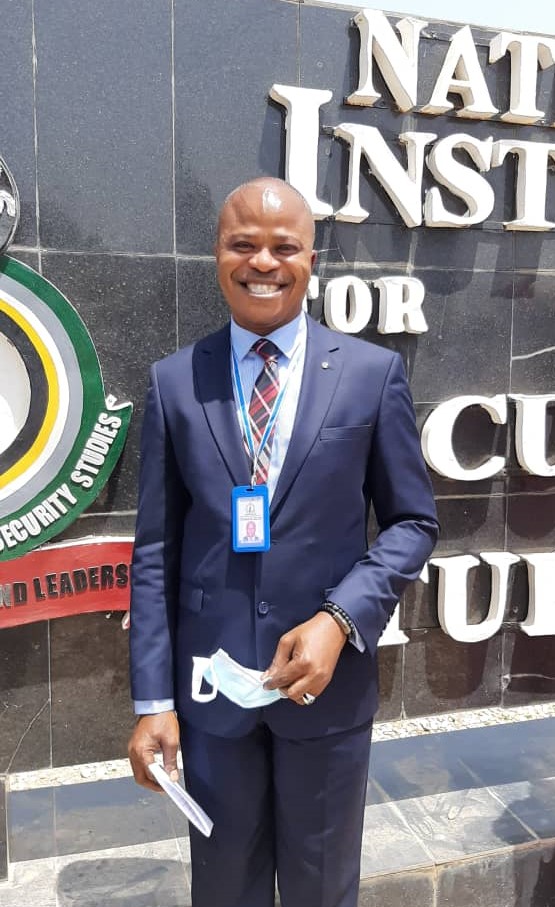
L&S: Tell us about your first day in court.
A: Oh! it was nightmarish! Mhen! It was something else. I did my National Youth Service Corps (NYSC) in the Law Firm of O.O. Olowokure & Co., in Kaduna metropolis from 1990 to 1991. I was called to the Bar in December of the same year and came back to continue Youth Service. My boss of the blessed memory sent me around to file proceedings and do searches. I wasn’t exposed to litigation in the real sense. It was after the service that I went back home to Ankpa in my state to join somebody I had met at the university, who was my senior. S. A. Agada. He was practicing at Ankpa when I started working with him.
The first day I arrived at his office, he gave me a file. It was not even to file a process or to take a date. He gave me a trial file, saying he knew that I was brilliant. The trial was to hold that morning and he travelled for a matter at the Court of Appeal in Jos. The late James Ocholi, SAN, a former Minister of State for Labour and Productivity was on the other side. He wasn’t a minister then. I had an idea of how to announce my appearance. I tried to remember what I was taught in law school. And it was our case that was called first. We were also opening our case and I was to put the plaintiff in the witness box.
So, I called my witness. He started telling his story and finished without mentioning the land documents. The C of O, Deed of Assignment. He didn’t mention anything pertaining to the land in dispute. As I just picked up the documents to show him, Ocholi jumped up and objected. Let me tell you, I almost peed on myself. I was sweating. He jumped up and said “No, a proper foundation has not been laid.”
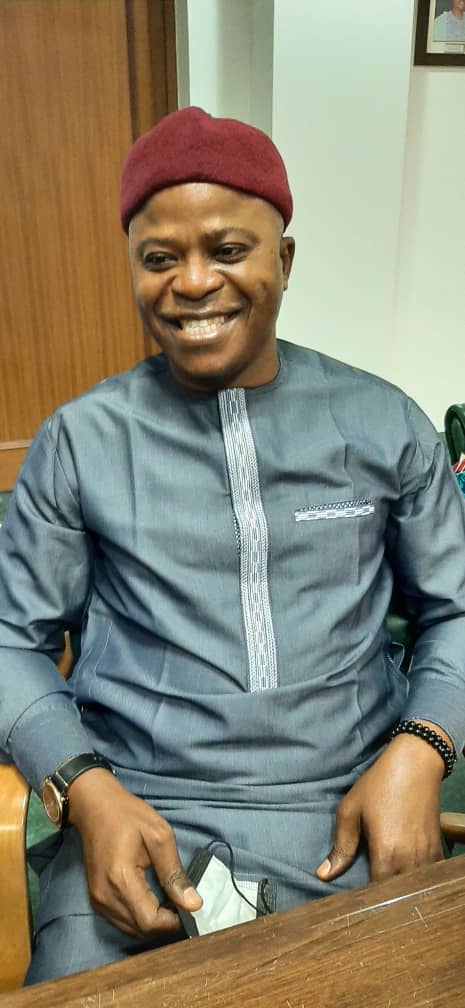
Knowing I was a young lawyer, instead of guiding me, instead of him to advise me, he wanted to take advantage of a young lawyer. And he was a very senior lawyer. He could have just said, “No you cannot do that”, maybe we take a date; but he started ventilating. While he was ventilating and saying that no proper foundation had been laid and that the entire document should be rejected immediately, something told me to ask for an adjournment. When he sat down, I stood up and said, Your Lordship, I would like to ask for an adjournment. The judge, a woman, said, “That’s my boy.”
L&S: She said that?
A: She said, “That’s my boy,” and banged the table. Ocholi got up and said “No. He cannot at this point refuse to go ahead and tender his document.” The judge responded, “No, he tendered a document you have objected to but he has not responded to you. If he had responded to you, he cannot withdraw it again. But you’ve objected and he’s withdrawing. He doesn’t want to continue. The procedure allows it, and I will allow it. Date Please?” That’s how I escaped my first day in court. I went home sweating. I couldn’t sleep that night.
L&S: Were you married then?
A: No, I was single. My boss came back the next day. Before I even saw him, one lawyer had gone to his house and told him what happened. When we met the next day he expressed how impressed he was of me. That’s the story of my first day in court. It’s funny now, but on that day, my heart was beating. I could have had a stroke. I was just about 24/25 years old. This thing happened in 1992. I was about 2 years at the bar.
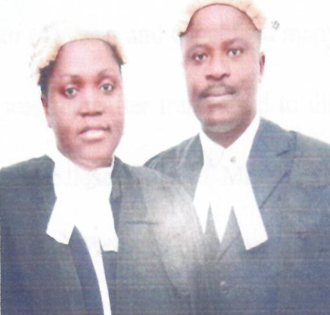
L&S: You later left Ankpa for Lagos.
A: Ankpa was not my thing at all. It was a local environment and I wanted more in life. I was brought up and born at home. I am talking of real village lifestyle. But somehow, I had a sense of where I wanted to be. But what I would say helped me was that I gave my life to Christ early. It kind of opened me up to so many things. Reading Christian novels, listening to tapes, David Yonggi Cho tapes, Oral Roberts, Kenneth Hagin and others. At a young age, I started collecting their pamphlets, and magazines. Somebody from the city came to the village and started giving us Christian magazines, tracts and tapes; those small cassettes. Then I started writing to Yonggi Cho’s church. They’ll send materials, videotapes which I couldn’t watch at the time, the audio ones, and magazines. These widened my understanding of life before I left the village. The first time I left the village was to go to the School of Basic Studies, Makurdi.
So when I got back to Ankpa to practice, I knew I wasn’t cut out for that place but I needed to stabilize, having just come out of school. Then I’d met this fine girl who was spinning my head. And she’s not a village girl. She was born in Lagos and brought up in Port Harcourt. She doesn’t know what village life is about.
One morning, something told me, “This is not your place, please go.” I went to my boss’s house, to tell him that I’m leaving. He shocked. I’d even started going to the Court of Appeal as a very young lawyer but I told him I couldn’t stay. I was doing well in the courts. My brain was hot. I was good. I was aggressive. I was even locking up some people, in trespass cases. But somehow, I knew that, that environment wasn’t for me, even though my boss succeeded there. The house they got for me was on top of the hill. Ameh Quarters they call it. If I stayed in front of my house, I could see the whole of Ankpa.
L&S: Your boss was sending you to the Court of Appeal at a very young age at the bar?
A: Yes, I was already going to the Court of Appeal. My boss said, “It’s that girlfriend of yours that is turning your head. I said, “Maybe.” My girl who is now my wife was in Lagos. It pained him. But my wife wasn’t the one that influenced me. I took my decision and told her later. My parents supported me. I knew that I wasn’t going to become a big lawyer in a village. My Boss is still there. He has money. But I knew I could make more impact. I could see places. I could do more.
L&S: Did you have anybody in Lagos you could stay with?
A: My wife was already there as a lawyer working with a finance company. We were not married yet, but I had a relation who was pastoring a church in Lagos. We were together in a Christian fellowship at home. I was like his spiritual son. He was an assistant pastor there and was staying in the Boys’ Quarters of the church in Adeniyi Jones. Adeniyi Jones in Ikeja very close to most of the places I needed to operate in. My wife was working at Fadeyi; McRoyal Finance Company. She was their General Manager and Legal Adviser. So, when I leave my house, I’ll go to her office in the morning.
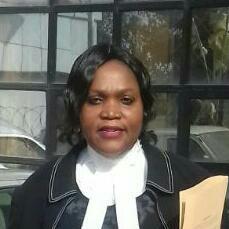
Later, I registered my law firm and got an office I could use at TBS, Tafawa Balewa Square. The office belonged to the lawyer I did my Chambers attachment with. M. O. Awoyemi. He’s late now. When told him that I was back and wanted to use his office and he said: “Use everything. Put the address on your card, your letterhead, everything. Use all the books you want. If you want to carry everything and go to court, go ahead. Very nice man. My briefcase was actually my office, all my documents were there. I can stay anywhere, type documents and send them. I started hustling, it paid off eventually.
L&S: How did you meet your clients, considering you had just come to Lagos?
A: Before I entered Lagos, I knew one man who had a finance company. He even wanted to employ me as Company Secretary but I refused. I ended up doing jobs for him and getting more money in one job than he could have paid me monthly.
I was his legal adviser and external solicitor to the company. I started working for my wife’s company too. My wife’s company started engaging me to do searches for them. They’ll send me to Abuja, send me to local governments in some states in Nigeria. That gave me so much money. That’s how we got married. I got so much money within six months I got to Lagos that by December 1992, we had gotten married.
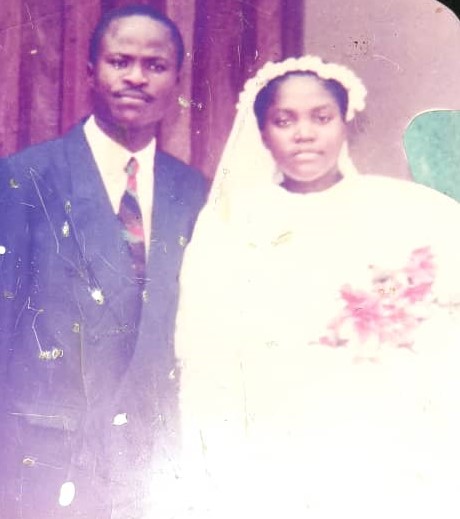
I even got some litigation matters. People from my place who knew I was a lawyer were telling people about me. They would call me anytime they had a police case. And the way I’ll enter the police station with so much wisdom and flexibility gave me favour. I don’t even give a dime to anybody. And sometimes, I’ll go to companies difficult to enter.
I remember my encounter with Emeka Offor in my early stages. Somebody from my place worked as his security man. A thief came and burgled the place overnight and the first suspects were the security men. They were rounded up and sent to the dreaded Area F in Ikeja. Somebody in my church got in touch with me so I went to the man’s company in Victoria Island; Chrome Oil. When I came to the gate and requested to see him, the men there said: “Who are you?” I told them I was a lawyer and indeed I dressed up well like a lawyer. “Where’s your card?”, one of them asked. I gave him my card. “Who do you want to see?” “I want to see boss, boss. The main boss, Emeka Offor.”
They just laughed. I said, “What’s that? I want to see him. I’m a lawyer. Do you know the damage you could do to him and his company if you stop me from seeing him? So, one of the senior men said let him go in. I didn’t know that Emeka Offor was watching the entire drama on his CCTV. When I got in to the Secretary, I didn’t waste time. He’d instructed they should allow me to come up to his office. I entered and told him my story.
“You’re courageous,” he said. “How old are you?” I told him. “How old are you as a lawyer?” I told him. He said, “Let me get this, you’re are coming to Emeka Offor? Have you heard of me before?” I said, “Yes, I’ve heard of you a few times and I know about Chrome Oil.” He said, “Okay, what do you want me to do for you?” I said, “I want you to release those guys. They’re not involved. They’re victims of circumstances.” He said, “Go and come back on Thursday.” It was on a Monday.
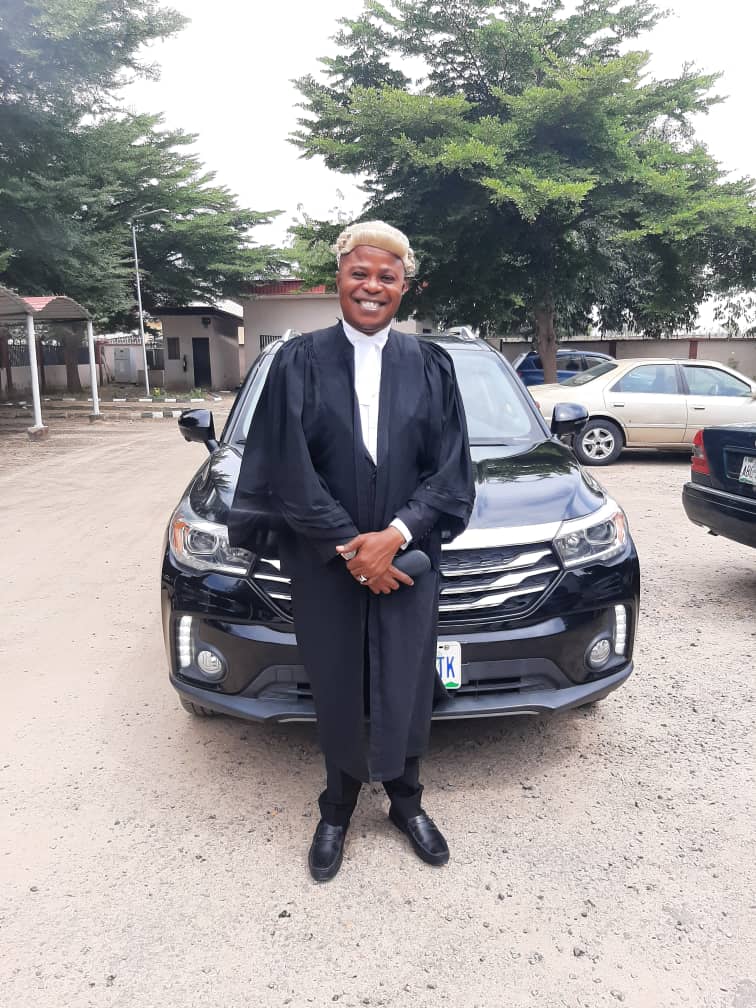
When I turned to go, he said hold on. He pulled out a drawer and gave me a bundle of money. I refused it, but he said, “I like you. You’re going somewhere, you have courage. I saw you from the CCTV when you were arguing with those boys at the gate. I was hearing your voice and the way spoke to them. I like you. You can’t come to my office and go empty-handed. You’re going to do well.” I can’t remember how much it was, but it was a lot of money at that time. When I came back on that Thursday, we had the same conversation.
There was no GSM then so he called the DPO from his cellular phone (nought-9-nought of those days) to say that one lawyer was coming, to talk to him about those boys and that he should see if they could be released. As I was going, he gave me a bundle of money again. The DPO was curious to know who I was. He could not believe that, I just walked into Emeka Offor’s company, met him and convinced him to free those security guards without being related to him in any way. I met Emeka Offor three years ago and told him this story. He has forgotten.
I had many encounters here and there. People started talking about me doing something for them. In the early 1990s, finance companies were at a boom. Every street had a finance company and I was fortunate to be handling things for many of them. I was frequenting Abuja. During one of my trips in 1990, I ran into Abdullahi, the first Registrar General of CAC and introduced myself. “My name is Jonson. I want to talk to you sir. He asked why. I repeated myself, “I want to talk to you, sir.” Then he said, “Okay, follow me to my office.” There, he asked what I wanted and I told him how every time I come to Abuja with my files and documents, I spend ten days most of the time and CAC will still telling me stories. There and then he assigned a desk officer in his office to me and my files began to move at a supersonic speed.
L&S: How did growing up and perhaps your relationship with your parents shape your worldview?
A: We were four children biologically. Two boys and two girls. And then we had an adopted niece who stayed with us. So, we were five while growing up. My parents were predominantly farmers. My dad was farming food crops such as maize, yam and all others. While my mother was a merchant. She sold stuff like fish, and palm oil. She produces palm oil, sells and buys. Until she died, she was one of the richest persons I know. I was the last born of four before my small niece who followed me from behind.
My father was a blessed farmer. Even though he was initially doing subsistence farming, he became commercial without any form of mechanisation except his strength and his children. At some point, we practically lived on the farm from morning to night and his farm was so big that trucks came to move produces from there. He prospered. That was how they trained us. Just two of us were educated. My two sisters got married.
My parents were a very happy couple. We never saw them quarrel the way our neighbours were. My uncles on both sides, virtually quarreled over everything. My mother was the very patient type. My dad was a provider to the core and they loved each other. My Dad left his own local government, came and married my mum and stayed there. He didn’t go back again. He had us there and that is where he is still living up till today at age 106. ‘Love Nwantiti.‘
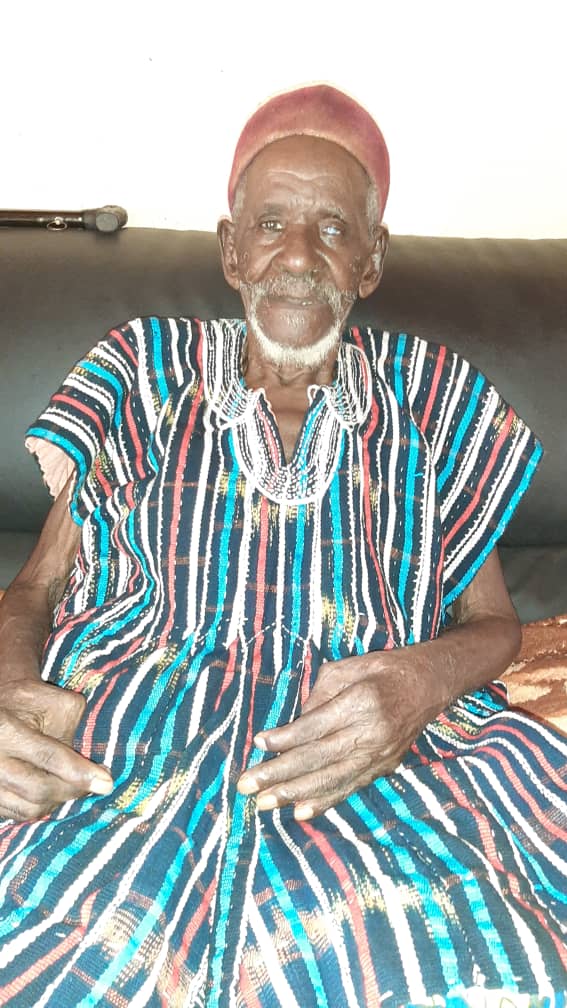
L&S: Your dad lives in his wife’s town?
A: My father, Ojogbane Haruna was originally from Alade-Egume in Dekina (LGA). He has lived in my mum’s village at Agojeju -Ejule, in Ofu local government area of Kogi state since they met till date. I grew up to see their love for those who are troubled. Those who are stranded. People will practically direct them to our house for assistance and those people were always be taken care of because the provision is always there.
The love they had for each other touched us. For me it has affected my marriage in a great number of ways. My father never yelled at my mother in the presence of anybody, not even the children. If he didn’t shout on her, how can he now raise a hand on her. There was no such thing in our house. My father was equally a very a generous man who understood the covenant of seed time and harvest. He understood the gleaning system. That is allowing the indigent to come to the farm and take what they can that is lying on the ground after harvest. He would invite people from the village to come and harvest yams; families that are distressed. He taught us generosity.
My mum was a very spiritual person. She did understand things. She always spoke into the future. She kept saying “we are doing this for you people. You’ll benefit from these in the days ahead. You’ll pass through difficult circumstances, you’ll see helpers.”
L&S: All of these experiences shaped your world view.
A: Yes, it shaped my world view. Being a problem solver. Being deliberate and not wait for chance. My parents were Christians. Their siblings were into the local religion. When my mother had me, she was already into Christ. She was a devoted one who faced a severe backlash for becoming a Christian. Her parents were traditional African worshippers. They told my father, “You came here, took our daughter and converted her.” She almost died when she was carrying me in the womb. I wasn’t supposed to be born, because of their curses. Their utterances. One of those times she had a dream where a masquerade pointed to her with a rod and said she would never have that baby (me). Still in the dream she stood to address the masquerade with the name of Jesus. God sustained me from my mother’s womb.
L&S: Tell us about your EFCC journey
A: My wife and I moved to Abuja in 1999 and set up our law firm. I joined the EFCC in 2004 as a Chief Detective Superintendent, while my wife joined the Civil Service the following year. I have worked in all the geopolitical zones.
L&S: As an EFCC official has there been occasions your life was threatened?
A: Several. In Enugu particularly. I went to Enugu in July 2009 and spent six years. It was my longest posting. By time I left Enugu, I had over 40 criminal convictions. There was none before I got there, and it was difficult. To prosecute financial criminal cases in the East is tougher than elsewhere in Nigeria at the time. It was very difficult because of the orientation there that 419 is not a violent crime. Even lawyers were fighting me in court physically. They were coming to my face to say, “Why are you opposing bail of a financial crime?” They didn’t understand that people suffer in the hands of these boys. Families, marriages are destroyed. Properties; everything gone. People even kill themselves.
Cars will be following me. Sometimes, they even reported me in various police stations. They wanted to have a way of arresting me; to do something to me before the system knows about it. Police has even come to my office over false allegations of THREAT TO LIFE only to realise the address they have is EFCC and that I’m the Head of Legal in the division. A man sued me for N100m, claiming I sent assassins to his house and that he saw me among them.
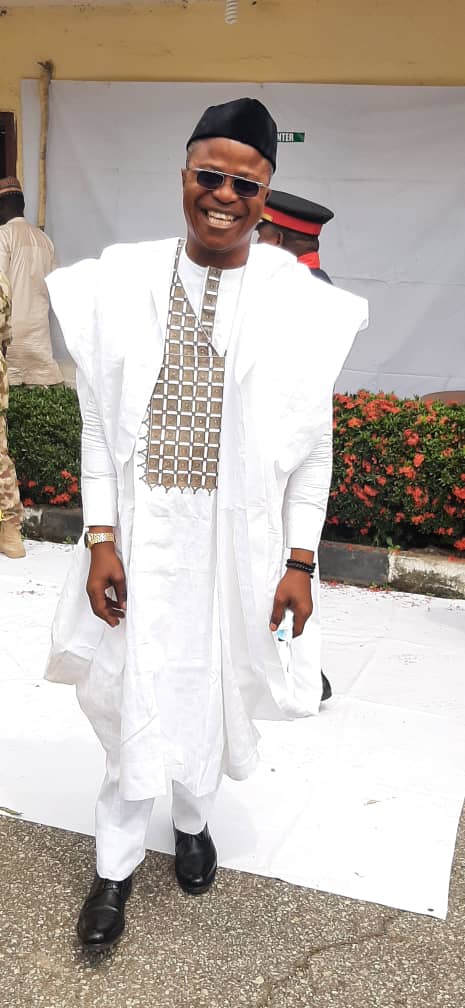
I escaped death when I was prosecuting a case against the husband of a former serving minister. I did not go to court with the team on a particular day because my niece was getting married in Abuja. As the lawyer who went with other team members and police officers were coming back, they were attacked. We don’t know whether it was because of the former minister’s husband or some other persons who wanted to cause harm. They blocked my team members on the road close to a village with their submachine guns. Shot my lawyer on the chest. One of our policemen fired twice and killed two of them but their people shot him on the head. He died on the spot. They wounded one of my investigators on his butt. Another person’s hand was wounded. The car was scattered. My colleagues that survived ran into the village. The villagers hid them while the criminals searched for them. I don’t know what would have happened if I was on that team,
The EFCC job was quite interesting but it carried consequences. People died because of the job. They were killed for the job. They went to their house, shot them till they died, and some died in accidents while traveling to places. Some died during armed robbery attacks in night buses. Surprisingly, when I went up north, I didn’t have such issues. I was at Kano, Kaduna, Maiduguri, and retired from the Gombe division. Maiduguri was one of the peaceful places I worked.
Between 2020 and 2021 I had oversight of the Legal and prosecution department as Acting Director of Legal and prosecution from where I proceeded to the prestigious National Institute for Security Studies, Lower Usman Dam Bwari, Abuja as a participant of the Executive Intelligence Management Course 14(EIMC14). I was conferred with the fellowship of the institute, Fsi. After this I spent another two years with the Commission before retiring on 31st May 2024.

